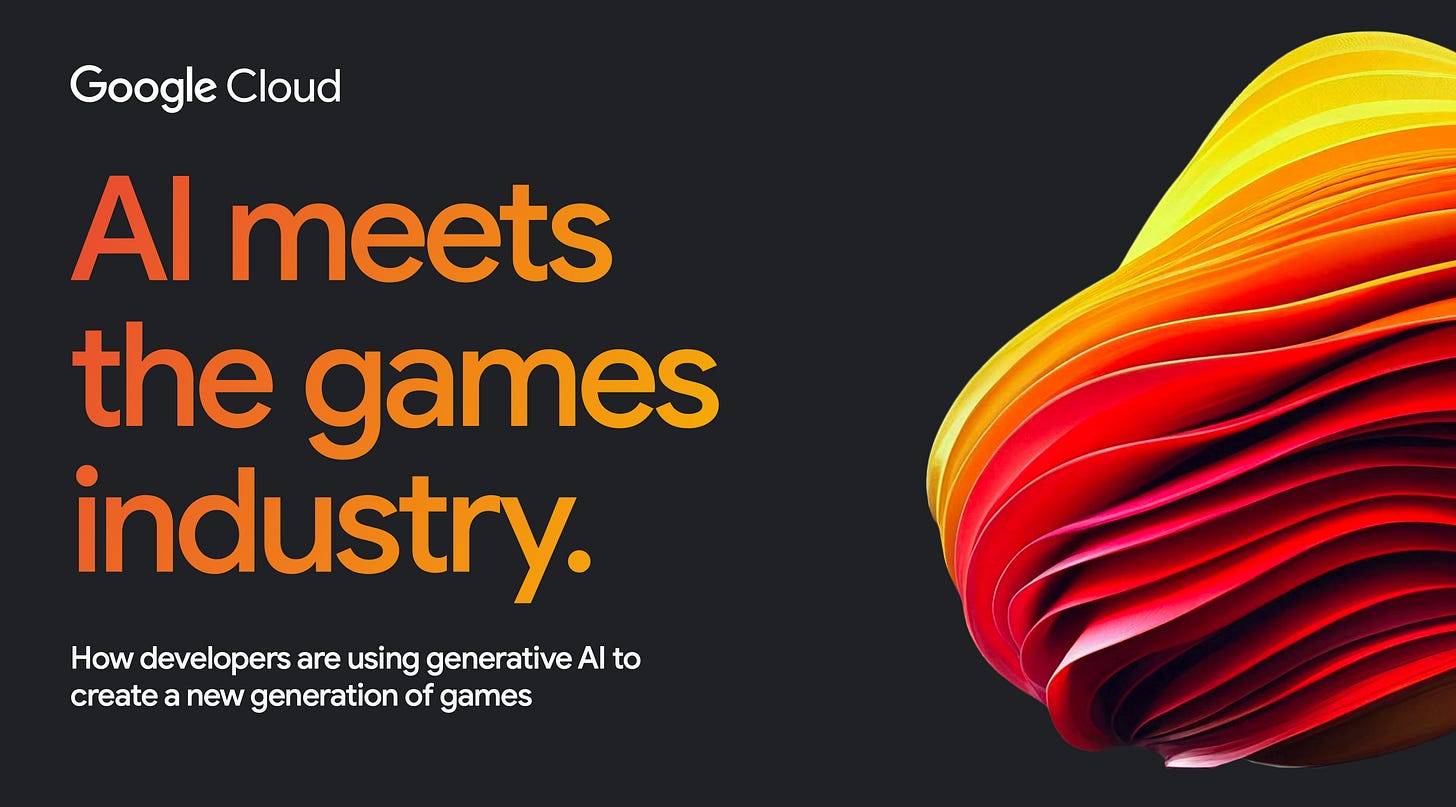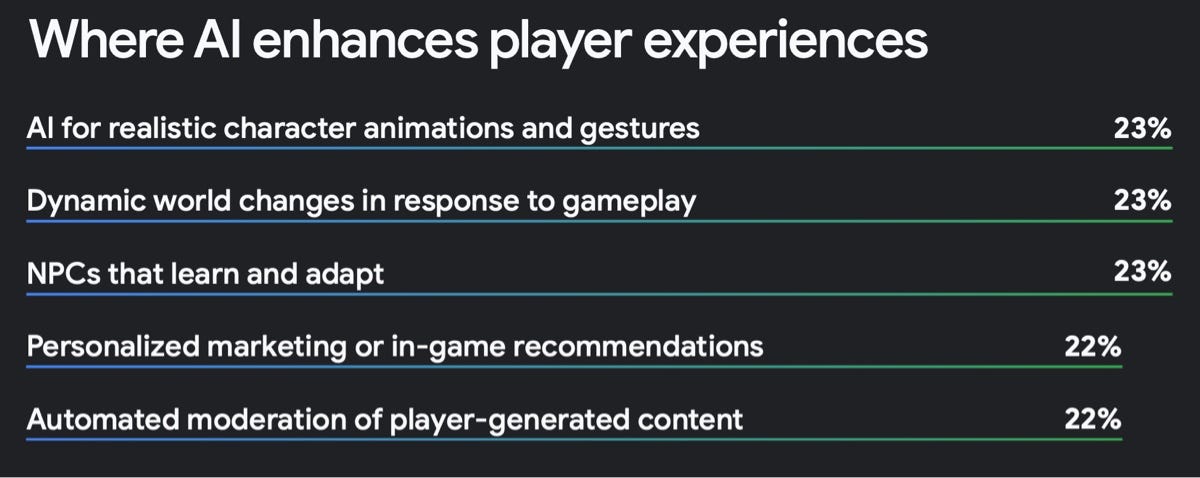Google Cloud: AI in the Gaming Industry in 2025
People agree that AI is changing the industry.
The report is based on a survey of 615 game industry professionals from the US, South Korea, Finland, Norway, and Sweden.
97% of respondents believe that gen AI is transforming the gaming industry.
95% said AI helps with routine tasks at work. 94% noted that AI drives innovation.
29% are convinced that AI tools are making the gaming industry more democratic.
87% use AI agents in their work. Most often, they are used for asset or content optimization (44%) and automated tutorials (38%).
Workflow transformation
56% said their work already involves AI.
Many agree that using AI allows them to solve tasks more efficiently, speed up prototyping, and deliver higher-quality products. AI also helps with cross-department collaboration.
30% believe AI will lead to better graphics and more detailed worlds. Beyond democratizing tools, 28% believe AI will accelerate pipelines, make them more data-driven, and increase competition for new entrants.
62% noted the emergence of new AI-related job roles. 41% say AI helps with analytics, and 37% believe their experiments became more efficient.
AI also contributes to creative tasks. 36% said they use AI to write dialogues. Many also use it for basic game design, concept creation, and narrative development.
37% believe that ultimately AI will make game worlds more alive and believable.
89% believe that player standards are rising due to AI. In particular, they see expectations for higher quality animations, responsive worlds that react to players, and NPCs that remember context.
Business impact
94% believe that making games will become cheaper within the next 3 years. 40% are confident that AI will create opportunities for new businesses and business models.
The main challenges companies face when adopting AI are difficulty in measuring efficiency (25%), cost of AI integrations (24%), limited data for AI training (23%), data privacy issues (23%), and the need for additional employee training (23%).
Questions remain about the proper use of AI. Concerns are mostly around personal data, licensing complexity, and ownership doubts regarding AI-generated works.








